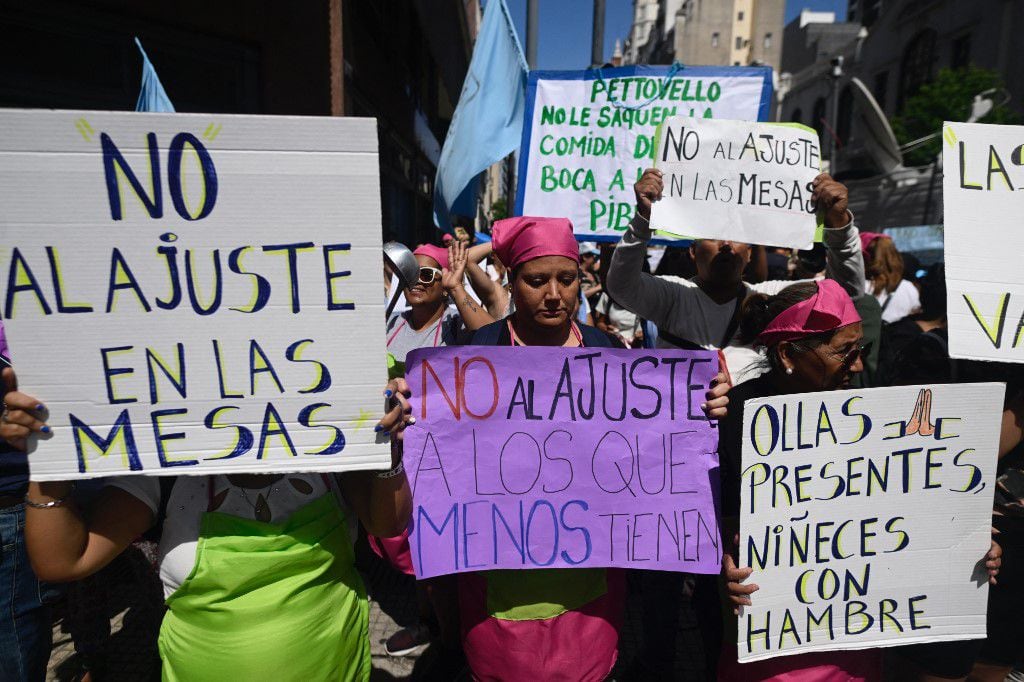The president of Argentina, Javier Milei, began his official activities in Israel with a visit to the Western Wall, in which he was moved to tears. While the president begins his international trip that will also take him to Italy and the Vatican, in his country the day ended with a hard blow for the Omnibus Law, the star project with which the liberal president seeks to carry out profound reforms on several fronts. .
TO LOOK: Milei announces from Israel the project to move the Argentine embassy to Jerusalem
The “Law of Bases and Starting Points for the Freedom of Argentines” – or Omnibus Law due to the large number of articles it includes – was left in legislative limbo this Tuesday, after the party in power requested the end of the debate in the Chamber of Deputies due to lack of agreement, with which the proposal will be processed again from scratch.
The law was approved in general on February 2nd, after three days of debate in the Chamber, and it was decided that voting on the articles would begin this Tuesday, the 6th.
The Chamber was in full voting when official deputy Oscar Zago asked for the project to be returned to the commission because, according to him, the opposition allies broke their commitment to follow key chapters of the Milei initiative, including that related to the privatization of companies.public .
“Treason pays dearly and La Libertad Avanza will not allow governors to extort the people to maintain their privileges. The Basic Law returns to the commission” was the text published by the group led by Milei minutes after the announcement of the measure, taken by a show of hands in the Chamber.
Differences over the content of the law were evident in last week’s vote. The project initially included 664 articles, but was reduced to much less than half after negotiations between the ruling party and some opposition blocs.
The delegation of legislative powers to Milei was one of the most controversial points in the negotiations between the ruling party La Libertad Avanza and the main forces that accompanied it since the project entered parliamentary processing: Pro, UCR and We Make the Federal . Coalition, recalls the Efe agency.
“The caste took a stand against the change that we, Argentines, voted for at the polls (…) We will continue with our program with or without the support of the political leadership that destroyed our country”, wrote Milei in his “X” account from Israel.
The setback in the law is a severe blow to the Milei government, whose economic program is centered on state deregulation to combat annual inflation exceeding 200%.
“This is taking a step back. It is a defeat for Milei, it shows that the way of negotiating the law that the government has been complying with until now has failed,” Argentine political analyst Santiago Rodríguez Rey told El Comercio.

The expert emphasizes that the debate took place in a complex situation. “At a certain point they counted the votes and realized that they were not going to be able to approve the privatizations as they were conceived and they returned the project to the commission, in other words, it went back to square one. The project is not rejected, but returns to the committee to continue working. After that there will be a new text,” he explains.
“The law was generally approved, but now the letter of the law has to be reformulated to create a project that is easier to approve”, he adds.
With the text returned to the committee, a majority opinion must be obtained again and returned to the Chamber of Deputies for processing before its subsequent passage to the Senate.
Milei also seeks to strengthen its role abroad. In Israel, the president announced the project to transfer the Argentine embassy to Jerusalem.
Currently, the Argentine embassy is located in Herzliya, near Tel Aviv, where the vast majority of diplomatic representations are located.
The Argentine president, who in recent years has become closer to Judaism, told the Israeli Foreign Minister that with his visit he intends to express his “support for the people of Israel” and “defend the legitimate defense” of the Jewish State against “terrorists ”. ”from the Palestinian Islamic movement Hamas.
From Israel, Milei will then travel to Italy to meet Pope Francis on Monday at the Vatican and meet with Italian President Sergio Mattarella and Prime Minister Giorgia Meloni.
Source: Elcomercio
I am Jack Morton and I work in 24 News Recorder. I mostly cover world news and I have also authored 24 news recorder. I find this work highly interesting and it allows me to keep up with current events happening around the world.

:quality(75)/cloudfront-us-east-1.images.arcpublishing.com/elcomercio/756DEWM3T5FYBHHJJUEHEH45II.jpg)

:quality(75)/cloudfront-us-east-1.images.arcpublishing.com/elcomercio/FGNDNEX4V5AKXF6INLTN4FLZUQ.jpg)

:quality(75)/cloudfront-us-east-1.images.arcpublishing.com/elcomercio/ZC7G365X6ZEBBDRA2PXKUECD7M.jpg)
:quality(75)/cloudfront-us-east-1.images.arcpublishing.com/elcomercio/WH2CYTIKL5BJJBOKOQJEO2NXXM.jpg)
